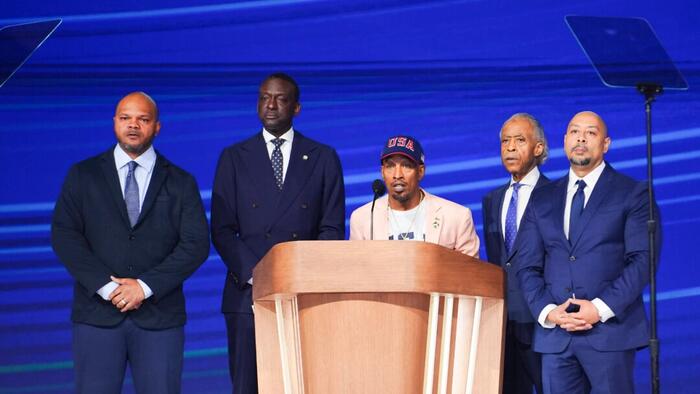On October 21, five men known as the Central Park Five filed a defamation lawsuit against former President Donald Trump, stemming from remarks he made during a presidential debate with Vice President Kamala Harris. Trump’s comments, claiming that the five men had “pled guilty” and were responsible for the murder of a jogger, provoked the lawsuit as the men argued these statements were false and harmful. The suit, lodged in federal court in Pennsylvania, asserts that Trump’s assertions were not only untrue but made with negligent disregard for their falsity, causing distress to the plaintiffs, who maintained their innocence in the notorious 1989 case.
The Central Park Five—Yusef Salaam, Raymond Santana, Kevin Richardson, Antron Brown, and Korey Wise—were wrongfully convicted in the 1990s for the assault and rape of Trisha Meili based on coerced confessions that they later recanted. Though initially tried for serious offenses, including murder, new evidence emerged a decade later when Matias Reyes, a convicted rapist, confessed to the crime. This confession led to further investigations that invalidated the earlier findings against the five men, culminating in a judge vacating their convictions in 2002.
Trump’s remarks during the debate were aimed at defending his previous controversial stance on the case, where in 1989, he had taken out a full-page advertisement calling for the execution of the men, who were then adolescents. In the debate, he reacted to Harris’s accusations by downplaying the historical context and claiming that there was a lack of current issues to address. In response to questions about whether he would apologize for his actions, he reiterated his belief in their guilt, which has further fueled the anger and hurt the plaintiffs feel.
The plaintiffs argue that Trump’s comments reflect a gross misunderstanding or misrepresentation of the legal outcomes and facts surrounding their case. They emphasize that they were never charged with murder nor did they admit to any such crime. Their lawsuit accuses Trump of acting with extreme negligence and expresses that his comments were not just misleading but intended to incite emotional distress.
In defense of Trump’s statements, his campaign spokesperson described the lawsuit as a distraction and frivolous, alleging it is part of an agenda from “left-wing activists” to undermine Trump’s political standing. This defensive posture continues a pattern of dismissing legal challenges as politically motivated, a tactic that resonates within Trump’s broader strategy leading into the campaign season.
As this case unfolds, it underscores the significant impacts of public statements made by influential figures, especially concerning historical injustices like that faced by the Central Park Five. Their ongoing legal battle not only seeks redress for past grievances but also challenges the narrative shaped around their horrific experiences, aiming to hold Trump accountable for his defamatory remarks and thereby seek justice not just for themselves, but also for the broader implications of false accusations and racism in the criminal justice system.

